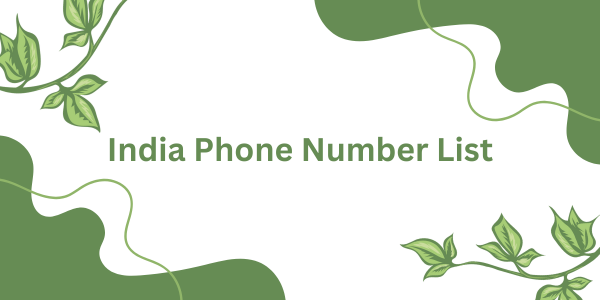|
|
India gained independence on August 15, 1947, marking the end of British colonial rule in the country. This historic event came after a long and arduous struggle led by numerous freedom fighters, movements, and sacrifices made by millions of Indians over several decades.
Background and Struggle for Independence
The British East India Company established control over large parts of India India Phone Number List in the 18th century, and by the mid-19th century, the British Crown took direct control, initiating the colonial rule over the subcontinent. The desire for independence began to grow as Indian leaders and reformers fought against British exploitation, taxation, and political control. The late 19th and early 20th centuries saw the emergence of organized movements like the Indian National Congress (INC) and the efforts of leaders such as Bal Gangadhar Tilak, Mahatma Gandhi, and others.
The demand for self-rule gained momentum through various movements such as the Non-Cooperation Movement, the Civil Disobedience Movement, and the Quit India Movement. Mahatma Gandhi's philosophy of nonviolent resistance became central to the fight for freedom, drawing millions of people to join the independence movement.

The Role of World War II
World War II (1939–1945) was a turning point in India's struggle for independence. The involvement of India as a British colony in the war without consulting its leaders increased resentment and demands for self-rule. After the war, the British government faced mounting pressure and financial constraints, which influenced their decision to leave India.
The Partition and Independence
On June 3, 1947, the British government, under Prime Minister Clement Attlee, announced that India would be granted independence. The decision to divide the country into two separate nations—India and Pakistan—was made to address religious and political differences, with India predominantly Hindu and Pakistan predominantly Muslim. The partition led to mass migrations, communal violence, and widespread suffering as millions of people were displaced.
On August 14, 1947, the last British Governor-General of India, Lord USA Phone number Database Mountbatten, formally transferred power to Indian leaders. At midnight, India officially became an independent sovereign nation. The first Prime Minister of independent India was Jawaharlal Nehru, who delivered his famous speech "Tryst with Destiny" to the Constituent Assembly.
Legacy of Independence
India's independence on August 15, 1947, marked the end of over 200 years of British colonial rule. The day is celebrated annually as Independence Day in India, symbolizing the struggles, sacrifices, and dreams of freedom fighters. This historic milestone paved the way for India to establish itself as the world's largest democracy while continuing its journey toward nation-building and economic growth.
|
|